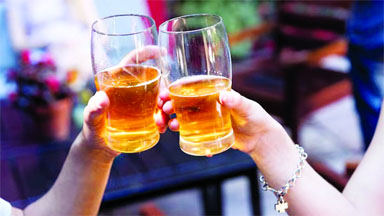A new study has found that drinking alcohol can worsen symptoms of bipolar disorder by destabilising mood and affecting work efficiency.
Contrary to the common belief that mood swings drive alcohol consumption, the research indicates that alcohol itself may be a contributing factor to these mood disturbances.
Bipolar disorder is characterised by significant shifts in emotions, energy, and activity levels, often accompanied by hallucinations and delusions.
Researchers from the University of Michigan, USA, aimed to explore the long-term effects of alcohol consumption on mood and functioning in adults with bipolar disorder.
The findings, published in The Journal of the American Medical Association (JAMA) Network Open, suggest that alcohol can significantly impact the condition.
The study involved 584 adults diagnosed with bipolar disorder, who were part of the larger ongoing Prechter Longitudinal Study of Bipolar Disorder (PLS-BD) for at least five years. Data was collected over a follow-up period of 5 to 16 years.
Participants’ alcohol consumption was assessed using the Alcohol Use Disorders Identification Test, a WHO-approved questionnaire designed to screen for problematic drinking. Other standardised questionnaires were used to evaluate depression, mania or hypomania, anxiety, and overall functioning.
The study revealed that exceeding one’s typical alcohol consumption led to worse depressive and manic or hypomanic episodes, as well as decreased work performance.
Alcohol consumption can increase mood instability in bipolar disorder
